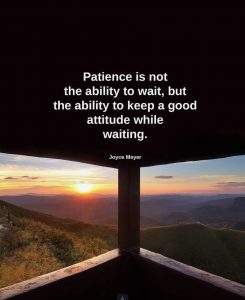《自律養生實踐家之旅322》 耐心的最佳伴侶

有些事、有些道理,我們以為自己早已懂得,但往往在某個關鍵的頓悟時刻,才驚覺原來過去所謂的「懂」,其實是一場誤會。
為什麼那些其實還不懂的道理,會被大腦包裝成「理所當然」?甚至還自信滿滿的教導他人?
人性最大的試煉,往往也是最容易犯錯之處,就藏在這些情節裡:以各種名義行傲慢之實。
傲慢經常披著想「表現自己懂得很多」的外衣出現,聽對方說話不是為了理解對方,而是急著表達「我知道得比你多」。
人生總會有被「蓋棺論定」的一天,有人五十歲便交出答卷,有人九十歲仍在人間結緣。我們需要多大的耐心,才能等到生命真正接受審判的那一刻?
這篇文章的主題是「耐心」,而非「傲慢」,但這兩者卻常在我們生命中糾纏不清。我自己,正是曾經被這兩者深深污染的人。
健康與壽命雖有關聯,卻並不絕對相干。健康需要自己辨識,壽命則交由上天決定。這層事實,也正連結「傲慢的放下」與「耐心的養成」。
當我站上養生教育的講台,內心的第一個質問便是:「我何德何能?」,這份職責,是我賴以維生的志業,還是賴以謀利的工具?我必須清楚分辨。
選擇承擔的理由,先確認這不是一條可以獲利的路,然後才明白,自己無法逃避這份責任。
一旦踏上這條路,就要認清:關於「耐心」的課題,是一門沒有時間表的修行。在這條路上,我不斷學會脫下那身「傲慢」的盔甲。
我不以「專業」自居,而是分享身體的天賦與潛能。我的工作,是協助我所遇見的每一位個體認識自己的身體,若有餘力,更協助他們找回遺失的自己。
無利可圖的道路,卻隱藏著最大的收穫:沒有什麼,比學會與自己好好相處更有價值;也沒有什麼力量,比發掘身體的智慧更為珍貴。
真正的教學指引,來自於學習者,我所寫下的內容,更像是教學的回顧筆記,而非教材。
說得坦白些,學員一直是我的老師,我的許多領悟,都來自他們的提問與態度。學生的傲慢,我得收;學生缺乏耐心,我也得領受。
養生,其實是一門生命教育。真正的挑戰,不在於教學內容的難度,而是面對人性的考驗。第一個十年累積的心得,與第二個十年如出一轍,那些曾經囤積在我身上的無明,成了我志業道路上層層堆疊的阻礙。
「我知道」與「我不知道」之間的轉換,是傲慢必須面對的課題;而「不知道」該如何與「我知道」拉開距離,則是我們一生必修的耐心學分。
因為「不知道」,才是推動我們不斷前行的強大動力。
我自己對於「培養耐心」的體會,可以濃縮為一句話:不預期,前提是,你確信自己走在正確的道路上。
多年觀察下來,我發現:擅長理性思考的人,反而較難養成耐心;而願意順從內在節奏、聆聽身體訊號的人,則往往更能等待結果的到來。
聽十分鐘的話就不耐煩、上一堂兩小時的課也坐不住、聽到斷食七天便充滿驚恐。這樣的人若想獲得人生的圓滿,我的看法必先檢視自己傲慢的習氣。
無法預知,這輩子會在何處終老、會活到幾歲才劃下句點。可以預言的是:我將落腳於一處充滿溫情的所在。
這些年來,我的生命圖像始終有一位堅定的伴侶,她的提早告別,讓我無法確定未來的圖像會是「一個人」、「兩個人」,還是我長久憧憬的「一群人」。
有一種心情,特別值得記錄:繼續前行,但不懷期待。
如果順利,那是上天的恩賜;如果不順遂,那是提醒我繼續專注分內之事。
生命旅途持續出現類似的提醒:一帆風順,人就傲慢;遭遇挫折,則容易抱怨。
這樣的情境與養生之道有極深的關聯,手指頭指著別人的承受病痛,反求諸己的可望找到那份名為「耐心」的智慧。
耐心,有一位最佳伴侶,這是我在推廣身體之道教育中最深的領悟。早期,我鼓勵學員「給時間」;近年來,我則強調「不期待」,最終的總結回到:「做該做的事。」
這些年來,我們透過「不吃」的練習培養耐心,而耐心,正如哲學家所說,是人類最偉大的醫師之一,這絕非無的放矢。
哲學家道格拉斯・哈丁曾說:「這難道不是我們最後才會感到感激的事嗎?那件事「發生了」,你本來可以不曾發生,但你發生了。」
「凡事未定」呼應「不預期」,催生了耐心,淬鍊了健康,也最終為生命寫下圓滿的篇章。
(耐心不是等待的能力,而是在等待中仍能保持良好態度的能力。)
The Best Companion of Patience
There are truths and principles we think we already understand—until a sudden moment of clarity reveals that what we once believed to be “understanding” was, in fact, a misunderstanding.
Why is it that ideas we don’t truly grasp are so easily wrapped by the brain in a cloak of “self-evidence,” even prompting us to confidently teach others as if we truly knew?
The greatest trials of human nature—and our most common downfalls—often lie in such moments: hiding arrogance under various noble pretexts.
Arrogance often disguises itself as a desire to “show how much we know.” We don’t really listen to understand the other; we’re too eager to assert, “I know more than you do.”
Eventually, every life meets its final judgment. Some submit their answer sheets at fifty, others are still forging connections at ninety.
How much patience do we need to endure until the moment life is truly ready to be measured?
The theme of this essay is patience, not arrogance—but the two are deeply entangled throughout our lives. I know this well, because I was once consumed by both.
While health and longevity are related, they are not the same. Health must be discerned by oneself; longevity is left to the heavens.
This truth bridges the act of letting go of arrogance and the cultivation of patience.
When I first stepped onto the platform as a health educator, my heart questioned: “Who am I to teach?”
Is this calling a sacred mission to serve—or just a tool for personal gain? I had to make that distinction clear.
I chose to take up the role only after confirming this path was not one of profit.
Once committed, I knew this journey would be a lifelong practice, one with no fixed schedule. Along the way, I’ve had to continually shed the armor of arrogance.
I do not claim expertise. I simply share the innate gifts and intelligence of the body.
My task is to help every individual I meet better understand their own body—and, if possible, guide them back to the parts of themselves they’ve lost.
There is no profit in this path—but it holds the greatest reward: nothing is more valuable than learning to live well with oneself, and no force more precious than unlocking the body’s hidden wisdom.
True teaching guidance comes from the learners. What I write often feels more like reflections than curriculum.
To be honest, my students have always been my teachers. Many of my insights come from their questions, their attitudes.
Their arrogance—I must absorb. Their impatience—I must receive.
In truth, health education is a form of life education. The challenge isn’t the difficulty of the material, but the test of human nature.
The lessons from my first decade are no different from the second: the ignorance that once clung to me became the very blocks I had to clear.
The shift between “I know” and “I don’t know” is a lesson arrogance must confront.
But learning how “not knowing” can remain distinct from false certainty—that is the lifelong curriculum of patience.
For it is “not knowing” that drives us forward.
If I were to distill my own experience of cultivating patience into a single truth, it would be this:
**Do not expect—**but only if you’re certain the path you’re on is the right one.
Over the years, I’ve noticed this pattern: those who favor rational thinking often struggle more with patience.
Those who can listen to their inner rhythms and attune to their bodily signals tend to better endure the wait for results.
Some people become restless after ten minutes of listening, can’t sit through a two-hour class, or panic at the idea of a seven-day fast.
If such a person hopes to attain fulfillment in life, they must first examine the arrogant habits within.
We cannot foresee where we’ll spend our final years, or how long we’ll live.
But I can predict this: I will settle in a place filled with warmth and tenderness.
For years, my life’s vision included a steadfast partner.
Her early departure has left me unsure whether my future will be walked alone, with one other, or with the community I long envisioned.
Yet one emotion has been especially worthy of recording:
To keep moving forward—without expectation.
If things go smoothly, it’s a blessing. If not, it’s a reminder to focus on what is mine to do.
Life constantly sends such reminders: when things go too well, we become arrogant; when met with hardship, we fall into complaint.
This directly mirrors the path of health: pointing fingers at others’ illnesses while failing to reflect inward only distances us from the quiet wisdom of patience.
Patience has a best companion—this is the deepest insight I’ve gained in my years of teaching the way of the body.
In earlier years, I encouraged students to “give it time.” In recent years, I emphasize “let go of expectations.”
And ultimately, the core message returns to this: “Do what must be done.”
Through the practice of not eating, we have nurtured patience. And patience, as the philosopher once said, is one of humanity’s greatest healers. This is no hollow claim.
Philosopher Douglas Harding once said:
“Isn’t it the very thing we’re most grateful for in the end—that it happened? It didn’t have to. But it did.”
In this spirit, “nothing is set in stone” echoes “no expectations”—birthing patience, refining health, and writing a most complete chapter for our lives.


